The Well-Tempered Ear
Here are the classical music winners of the 2023 Grammy awards
1 Comment
PLEASE HELP THE EAR. IF YOU LIKE A CERTAIN BLOG POST, SPREAD THE WORD. FORWARD A LINK TO IT OR, SHARE IT or TAG IT (not just “Like” it) ON FACEBOOK. Performers can use the extra exposure to draw potential audience members to an event. And you might even attract new readers and subscribers to the blog.
By Jacob Stockinger
The 2023 Grammy — officially known as the 66th Grammy Awards — took place on live TV Sunday night.
Big surprise: pop singer Taylor Swift — she of the $1,000 concert tickets, Kansas City Chiefs skybox and crazy right-wing conspiracy theories about about how she and the NFL are plotting to rig the Super Bowl and re-elect President Biden — dominated and took home a record-breaking fourth Album of the Year for “Midnights.”
In addition, all of the main events — the live performances — that aired on CBS were non-classical.
Does anyone else think that demonstrates just in what disregard — aside from atoning for past neglect of women, composers and performers of color, and contemporary compositions — most classical music is being held right now?
We must not forget that the Grammys are industry awards, designed to recognize and promote sales and profit above and beyond artistic merit, although the two aims sometimes coincide.
That lack of respect also seems demonstrated by the fact that if you go to the website with the complete list for Grammy winners and nominees, the classical Grammys rank dead last. Ahead of classical you will find (in rough order): pop; electronic dance; rock; alternative; rhythm and blues; rap; spoken word; jazz; Latin; contemporary; roots; bluegrass; blues; folk; gospel; Christian; global; African; reggae; new age; children’s; comedy; audiobook; soundtrack; video games; and album notes.
But enough grousing.
Or maybe not.
Anyway, if you want to see that complete listing of the winners along with the nominees, here is a link: https://www.grammy.com/awards/66th-annual-grammy-awards-2023
And excerpted from that list of the nominees and winners of the Grammy Awards are the winners, which have been capitalized and boldfaced.
87. Best Orchestral Performance
Award to the Conductor and to the Orchestra.
ADÈS: DANTE
Gustavo Dudamel, conductor (Los Angeles Philharmonic)
Bartók: Concerto For Orchestra; Four Pieces
Karina Canellakis, conductor (Netherlands Radio Philharmonic Orchestra)
Price: Symphony No. 4; Dawson: Negro Folk Symphony
Yannick Nézet-Séguin, conductor (The Philadelphia Orchestra)
Scriabin: Symphony No. 2; The Poem Of Ecstasy
JoAnn Falletta, conductor (Buffalo Philharmonic Orchestra)
Stravinsky: The Rite Of Spring
Esa-Pekka Salonen, conductor (San Francisco Symphony)
88. Best Opera Recording
Award to the Conductor, Album Producer(s) and Principal Soloists, and to the Composer and Librettist (if applicable) of a world premiere Opera recording only.
BLANCHARD: CCHAMPION
Yannick Nézet-Séguin, conductor; Ryan Speedo Green, Latonia Moore & Eric Owens; David Frost, producer (The Metropolitan Opera Orchestra; The Metropolitan Opera Chorus)
Corigliano: The Lord Of Cries
Gil Rose, conductor; Anthony Roth Costanzo, Kathryn Henry, Jarrett Ott & David Portillo; Gil Rose, producer (Boston Modern Orchestra Project & Odyssey Opera Chorus)
Little: Black Lodge
Timur; Andrew McKenna Lee & David T. Little, producers (The Dime Museum; Isaura String Quartet)
89. Best Choral Performance
Award to the Conductor, and to the Choral Director and/or Chorus Master where applicable and to the Choral Organization/Ensemble.
Carols After A Plague
Donald Nally, conductor (The Crossing)
The House Of Belonging
Craig Hella Johnson, conductor (Miró Quartet; Conspirare)
Ligeti: Lux Aeterna
Esa-Pekka Salonen, conductor (San Francisco Symphony Chorus)
Rachmaninoff: All-Night Vigil
Steven Fox, conductor (The Clarion Choir)
SAARIAHO: RECONNAISANCE
Nils Schweckendiek, conductor (Uusinta Ensemble; Helsinki Chamber Choir)
90. Best Chamber Music/Small Ensemble Performance
For new recordings of works with chamber or small ensemble (twenty-four or fewer members, not including the conductor). One Award to the ensemble and one Award to the conductor, if applicable.
American Stories
Anthony McGill & Pacifica Quartet
Beethoven For Three: Symphony No. 6, ‘Pastorale’ And Op. 1, No. 3; Yo-Yo Ma, Emanuel Ax & Leonidas Kavakos
Between Breaths
Third Coast Percussion
ROUGH MAGIC
Roomful Of Teeth
Uncovered, Vol. 3: Coleridge-Taylor Perkinson, William Grant Still & George Walker
Catalyst Quartet
91. Best Classical Instrumental Solo
Award to the Instrumental Soloist(s) and to the Conductor when applicable.
Adams, John Luther: Darkness And Scattered Light
Robert Black
Akiho: Cylinders
Andy Akiho
THE AMERICAN PROJECT
Yuja Wang; Teddy Abrams, conductor (Louisville Orchestra)
Difficult Grace
Seth Parker Woods
Of Love
Curtis Stewart
92. Best Classical Solo Vocal Album
Award to: Vocalist(s), Collaborative Artist(s) (Ex: pianists, conductors, chamber groups) Producer(s), Recording Engineers/Mixers with greater than 50% playing time of new material.
Because
Reginald Mobley, soloist; Baptiste Trotignon, pianist
Broken Branches
Karim Sulayman, soloist; Sean Shibe, accompanist
40@40
Laura Strickling, soloist; Daniel Schlosberg, pianist
Rising
Lawrence Brownlee, soloist; Kevin J. Miller, pianist
WALKING IN THE DARK
Julia Bullock, soloist; Christian Reif, conductor (Philharmonia Orchestra)
93. Best Classical Compendium
Award to the Artist(s) and to the Album Producer(s) and Engineer(s) of over 50% playing time of the album, and to the Composer and Librettist (if applicable) with over 50% playing time of a world premiere recording only.
Fandango
Anne Akiko Meyers; Gustavo Dudamel, conductor; Dmitriy Lipay, producer
Julius Eastman, Vol. 3: If You’re So Smart, Why Aren’t You Rich?
Christopher Rountree, conductor; Lewis Pesacov, producer
Mazzoli: Dark With Excessive Bright
Peter Herresthal; Tim Weiss, conductor; Hans Kipfer, producer
PASSION FOR BACH AND COLTRANE
Alex Brown, Harlem Quartet, Imani Winds, Edward Perez, Neal Smith & A.B. Spellman; Silas Brown & Mark Dover, producers
Sardinia
Chick Corea; Chick Corea & Bernie Kirsh, producers
Sculptures
Andy Akiho; Andy Akiho & Sean Dixon, producers
Zodiac Suite
Aaron Diehl Trio & The Knights; Eric Jacobsen, conductor; Aaron Diehl & Eric Jacobsen, producers
94. Best Contemporary Classical Composition
A Composer’s Award. (For a contemporary classical composition composed within the last 25 years, and released for the first time during the Eligibility Year.) Award to the librettist, if applicable.
Adès: Dante
Thomas Adès, composer (Gustavo Dudamel & Los Angeles Philharmonic)
Akiho: In That Space, At That Time
Andy Akiho, composer (Andy Akiho, Ankush Kumar Bahl & Omaha Symphony)
Brittelle: Psychedelics
William Brittelle, composer (Roomful Of Teeth)
Mazzoli: Dark With Excessive Bright
Missy Mazzoli, composer (Peter Herresthal, James Gaffigan & Bergen Philharmonic)
MONTGOMERY: ROUNDS (in the YouTube video below)
Jessie Montgomery, composer (Awadagin Pratt, A Far Cry & Roomful Of Teeth)
Tags: #BlogPost, #BlogPosting, #FacebookPost, #FacebookPosting, #YouTubevideo, African, album notes, Amazon Music, Android, Anne Akiko Meyers, Anthony McGill, Apple Music, Apple Music Classical, arrangement, Arts, Asia, asian, atone, audience, audiobook, Awadagin Pratt, Bach, Barbie, Baroque, Bartok, Beethoven, Bergen, best, black, blog, bluegrass, blues, brown, Buffalo Symphony Orchestra, CBS, CBS-TV, cellist, Cello, Chamber music, Chick Corea, children, children's, China, Chinese, choral music, Christian, Classical music, Coleridge-Taylor Perkinson, Coltrane, comedy, composer, Concert, concerto, conductor, conservative, conspiracy theory, contemporary, contemporary music, Corigliano, country, crazy, Dante, disregard, disrespect, Donald Trump, Early music, electronic dance, Emanuel Ax, Esa-Pekka Salonen, Europe, Facebook, Florence Price, folk, football, fusion, George Walker, global, gospel, Grammy, Grammy Awards, Gustavo Dudamel, Harlem, hip-hop, industry, Jacob Stockinger, Japanese, Japoan, Jazz, Jessie Montgomery, JoAnn Falletta, John Coltrane, John Corigliano, Julia Bullock, Kaija Saariaho, Kansas City Chiefs, Latin, Lawrence Brownlee, Leonidas Kavakos, Ligeti, livde broadcast, Los Angeles Philharmonic, Louisville Orchestra, Metropolitan Opera, Miley Cyrus, Missy Mazzoli, Music, Musical theater, National Football League, neglect, New Age, NFL, Norway, opera, Orchestra, OS, Pacific Quartet, Passion, performance, performer, Philadelphia Orchestra, Philharmonia Orchestra, Pianist, Piano, Piano Trio, pop, President Biden, profit, promote, promotion, psychedelic, Rachmaninoff, Rachmaninov, recorded music, reggae, right-wing, Rock, Roomful of Teeth, root, sales, San Francisco Symphony, Scriabin, share, singer, singers, Singing, skybox, snub, soloist, soundtrack, spoken word, Spotify, Stravinsky, streaming, String quartet, symphony, Taylor Swift, Television, Terrence Blanchard, The Ear, The Knights, Third Coast Percussion, Thomas Ades, ticket, transcription, TV, United States, University of Wisconsin-Madison School of Music, University of Wisconsin–Madison, video games, Viola, Violin, violinist, vocal music, William Grant Still, Wisconsin, Wolfgang Amadeus Mozart, women, Yannick Nézet-Séguin, Yo-Yo Ma, YouTube, Yuja Wang, Zodiac
Here are the classical music nominees for the 2024 Grammy Awards
Leave a Comment
PLEASE HELP THE EAR. IF YOU LIKE A CERTAIN BLOG POST, SPREAD THE WORD. FORWARD A LINK TO IT OR, SHARE IT or TAG IT (not just “Like” it) ON FACEBOOK. Performers can use the extra exposure to draw potential audience members to an event. And you might even attract new readers and subscribers to the blog.
By Jacob Stockinger
The 2024 GRAMMYs, officially known as the 66th GRAMMY Awards (below, illustration courtesy of the Recoding Academy), will air live (8:00-11:30 PM, LIVE ET/5:00-8:30 PM, LIVE PT) on the CBS Television Network.
The show will also stream on Paramount+ (live and on demand for Paramount+ with SHOWTIME subscribers, or on demand for Paramount+ Essential subscribers the day after the special airs).
You’ll notice by the number of the categories that classical music is at the bottom of the list. The Grammys are intended primarily to promote important and profitable contributions to the industry as well as the quality of the music and performances.
For a complete list of all the categories and major nominees — including nominations for superstar Taylor Swift and the smash hit movie “Barbie” — go to: https://www.grammy.com/news/2024-grammys-nominees-record-of-the-year.
Here is a listing of the classical music nominations, which were announced yesterday, Friday, Nov. 10, 2023. The list can be helpful if you are looking for new recording to buy or stream. You can also hear promos and excerpts of most of the nominees on YouTube.
For a listing of previous classical music winners, go to: https://www.grammy.com/music-genre/classical. Click on the lower button that says “ALL NOMINATIONS FROM THIS GENRE.”
87. Best Orchestral Performance
Award to the Conductor and to the Orchestra.
Adès: Dante
Gustavo Dudamel, conductor (Los Angeles Philharmonic)
Bartók: Concerto For Orchestra; Four Pieces
Karina Canellakis, conductor (Netherlands Radio Philharmonic Orchestra)
Price: Symphony No. 4; Dawson: Negro Folk Symphony
Yannick Nézet-Séguin, conductor (The Philadelphia Orchestra)
Scriabin: Symphony No. 2; The Poem Of Ecstasy
JoAnn Falletta, conductor (Buffalo Philharmonic Orchestra)
Stravinsky: The Rite Of Spring
Esa-Pekka Salonen, conductor (San Francisco Symphony)
88. Best Opera Recording
Award to the Conductor, Album Producer(s) and Principal Soloists, and to the Composer and Librettist (if applicable) of a world premiere Opera recording only.
Blanchard: Champion
Yannick Nézet-Séguin, conductor; Ryan Speedo Green, Latonia Moore & Eric Owens; David Frost, producer (The Metropolitan Opera Orchestra; The Metropolitan Opera Chorus)
Corigliano: The Lord Of Cries
Gil Rose, conductor; Anthony Roth Costanzo, Kathryn Henry, Jarrett Ott & David Portillo; Gil Rose, producer (Boston Modern Orchestra Project & Odyssey Opera Chorus)
Little: Black Lodge
Timur; Andrew McKenna Lee & David T. Little, producers (The Dime Museum; Isaura String Quartet)
89. Best Choral Performance
Award to the Conductor, and to the Choral Director and/or Chorus Master where applicable and to the Choral Organization/Ensemble.
Carols After A Plague
Donald Nally, conductor (The Crossing)
The House Of Belonging
Craig Hella Johnson, conductor (Miró Quartet; Conspirare)
Ligeti: Lux Aeterna
Esa-Pekka Salonen, conductor (San Francisco Symphony Chorus)
Rachmaninoff: All-Night Vigil
Steven Fox, conductor (The Clarion Choir)
Saariaho: Reconnaissance
Nils Schweckendiek, conductor (Uusinta Ensemble; Helsinki Chamber Choir)
90. Best Chamber Music/Small Ensemble Performance
For new recordings of works with chamber or small ensemble (twenty-four or fewer members, not including the conductor). One Award to the ensemble and one Award to the conductor, if applicable.
American Stories
Anthony McGill & Pacifica Quartet
Beethoven For Three: Symphony No. 6, ‘Pastorale’ And Op. 1, No. 3
Yo-Yo Ma, Emanuel Ax & Leonidas Kavakos
Between Breaths
Third Coast Percussion
Rough Magic
Roomful Of Teeth
Uncovered, Vol. 3: Coleridge-Taylor Perkinson, William Grant Still & George Walker
Catalyst Quartet
91. Best Classical Instrumental Solo
Award to the Instrumental Soloist(s) and to the Conductor when applicable.
Adams, John Luther: Darkness And Scattered Light
Robert Black
Akiho: Cylinders
Andy Akiho
The American Project
Yuja Wang; Teddy Abrams, conductor (Louisville Orchestra)
Difficult Grace
Seth Parker Woods
Of Love
Curtis Stewart
92. Best Classical Solo Vocal Album
Award to: Vocalist(s), Collaborative Artist(s) (Ex: pianists, conductors, chamber groups) Producer(s), Recording Engineers/Mixers with greater than 50% playing time of new material.
Because
Reginald Mobley, soloist; Baptiste Trotignon, pianist
Broken Branches
Karim Sulayman, soloist; Sean Shibe, accompanist
40@40
Laura Strickling, soloist; Daniel Schlosberg, pianist
Rising
Lawrence Brownlee, soloist; Kevin J. Miller, pianist
Walking In The Dark
Julia Bullock, soloist; Christian Reif, conductor (Philharmonia Orchestra)
93. Best Classical Compendium
Award to the Artist(s) and to the Album Producer(s) and Engineer(s) of over 50% playing time of the album, and to the Composer and Librettist (if applicable) with over 50% playing time of a world premiere recording only.
Fandango
Anne Akiko Meyers; Gustavo Dudamel, conductor; Dmitriy Lipay, producer
Julius Eastman, Vol. 3: If You’re So Smart, Why Aren’t You Rich?
Christopher Rountree, conductor; Lewis Pesacov, producer
Mazzoli: Dark With Excessive Bright
Peter Herresthal; Tim Weiss, conductor; Hans Kipfer, producer
Passion For Bach And Coltrane
Alex Brown, Harlem Quartet, Imani Winds, Edward Perez, Neal Smith & A.B. Spellman; Silas Brown & Mark Dover, producers
Sardinia
Chick Corea; Chick Corea & Bernie Kirsh, producers
Sculptures
Andy Akiho; Andy Akiho & Sean Dixon, producers
Zodiac Suite
Aaron Diehl Trio & The Knights; Eric Jacobsen, conductor; Aaron Diehl & Eric Jacobsen, producers
94. Best Contemporary Classical Composition
A Composer’s Award. (For a contemporary classical composition composed within the last 25 years, and released for the first time during the Eligibility Year.) Award to the librettist, if applicable.
Adès: Dante
Thomas Adès, composer (Gustavo Dudamel & Los Angeles Philharmonic)
Akiho: In That Space, At That Time
Andy Akiho, composer (Andy Akiho, Ankush Kumar Bahl & Omaha Symphony)
Brittelle: Psychedelics
William Brittelle, composer (Roomful Of Teeth)
Mazzoli: Dark With Excessive Bright
Missy Mazzoli, composer (Peter Herresthal, James Gaffigan & Bergen Philharmonic)
Montgomery: Rounds
Jessie Montgomery, composer (Awadagin Pratt, A Far Cry & Roomful Of Teeth)
Do you know any of these Grammy nominations?
What one do you recommend or think should win?
The Ear wants to hear.
Tags: #BlogPost, #BlogPosting, #FacebookPost, #FacebookPosting, #YouTubevideo, academy, accompanist, accompany, Adès, African American, Album, America, American, Anne Akiko Meyers, Anthony McGill, Apple, Arts, audience, Awadagin Pratt, Bach, Barbie, Baroque, Bartok, Beethoven, Bergen, best, black, blog, blues, Boston, California, Carol, Catalyst Quartet, CBS, Cedille Records, cellist, Cello, Chamber music, champion, Chick Corea, choral music, Classical music, Coleridge-Taylor Perkinson, Coltrane, compendium, composer, Concert, concerto, conductor, contemporary composer, contemporary music, Corigliano, cries, Dante, drugs, Early music, Emanuel Ax, ensemble, Essa-Pekka Salonen, Europe, Facebook, Fandango, female, film, Finland, Florence Price, folk, genre, George Walker, Google, grace, Grammy Award, Grammys, Gustavo Dudamel, Harlem, Helsinki, Imani Winds, industry, Jacob Stockinger, Jazz, Jessie Montgomery, JoAnn Falletta, Johann Sebastian Bach, John Luther Adams, Latin, Leonidas Kavakos, Ligeti, link, live, Lord, Los Angeles Philharmonic, Louisville Orchestra, Love, Ludwig van Beethoven, Madison, Madison Symphony Orchestra, Mazzoli, Metropolitan Orchestra, movie, Mozart, Music, Negro, network, nomination, nominee, Norway, opera, Orchestra, Overture Center, Pacifica Quartet, paramount, percussion, performance, Philadelphia Orchestra, Philharmonia Orchestra, Pianist, Piano, Piano Trio, plague, pop, producer, profitable, promote, psychedelics, quality, Rachmaninoff, Rachmaninov, recorded music, Rock, Roomful of Teeth, Saariaho, San Francisco, Scriabin, share, Showtime, singer, Singing, solo, Sonata, soundtrack, space, stories, story, Stravinsky, stream, String quartet, Suite, symphony, tag, Taylor Swift, Television, Terrence Blanchard, The Ear, The Knights, the Met, Third Coast Percussion, time, trio, United States, University of Wisconsin-Madison School of Music, University of Wisconsin–Madison, Viola, Violin, violinist, vocal music, Website, William Dawson, Willian Grant Still, Wisconsin, Wolfgang Amadeus Mozart, women, world premiere, Yannick Nézet-Séguin, Yo-Yo Ma, YouTube, Yuja Wang, Zodiac
Here are the Top 10 online concerts to stream in March, according to critics for the New York Times
Leave a Comment
PLEASE HELP THE EAR. IF YOU LIKE A CERTAIN BLOG POST, SPREAD THE WORD. FORWARD A LINK TO IT OR, SHARE IT or TAG IT (not just “Like” it) ON FACEBOOK. Performers can use the extra exposure to draw potential audience members to an event. And you might even attract new readers and subscribers to the blog.
ALERT: The online live-streamed concert by the UW-Madison’s Pro Arte Quartet — scheduled for this Friday night, March 5 — in the all-Beethoven cycle of string quartets has been canceled and postponed until next year. The Friday, April 9 installment of the Beethoven cycle will be held as Installment 7 instead of 8.
By Jacob Stockinger
Classical music critics of The New York Times have once again picked their Top 10 online concerts for the month of March.
The Ear has found such lists helpful for watching and hearing, but also informative to read, if you don’t actually “attend” the concert.
If you have read these lists before, you will see that this one is typical.
It offers lots of links with background about the works and performers; concert times (Eastern); and how long the online version is accessible.
Many of the performers will not be familiar to you but others – such as pianist Mitsuko Uchida (below, in a photo by Hiroyuki Ito for the Times), who will perform an all-Schubert recital, will be very familiar.
But the critics once again emphasize new music and even several world premieres – including one by Richard Danielpour — and a path-breaking but only recently recorded live performance of the 1920 opera “Die Tote Stadt” (The Dead City) by long-neglected composer Erich Wolfgang Korngold (below), who is best known for his Hollywood movie scores but who also wrote compelling classical concert hall music. (In the YouTube video at the bottom, you can hear soprano Renée Fleming sing “Marietta’s Song.’)
But some works that are more familiar by more standard composers – including Mozart, Beethoven, Schubert, Schumann, Ravel and Copland – are also included.
The Times critics have also successfully tried to shine a spotlight on Black composers and Black performers, such as the clarinetist and music educator Anthony McGill (below top), who will perform a clarinet quintet by composer Samuel Coleridge-Taylor (below) and music in the setting of the Metropolitan Museum of Art.
No purists, the critics also suggest famous oboe and clarinet works in transcriptions for the saxophone by composer-saxophonist Steven Banks (below).
Also featured is a mixed media performance of words and music coordinated by the award-winning Nigerian-American novelist, essayist and photographer Teju Cole (below), whose writings and photos are irresistible to The Ear.
Here is a link to the story in the Times: https://www.nytimes.com/2021/02/25/arts/music/classical-music-streaming-concerts.html
Are there other online concerts in March – local, regional, national or international – that you recommend in addition to the events listed in the Times?
The Ear wants to hear.
Tags: #AaronCopland, #AdolphusHailstork, #AmyBeach, #AnthonyMcGill, #AppalachianSpring, #AsianComposer, #BerlinGermany, #BlackComposer, #BlackCulture, #BlackMusic, #Blackperformer, #BlackTraditions, #BlogPost, #BlogPosting, #BluesMusic, #CarolineShaw, #ChamberMusic, #ClaraSchumann, #ClarinetConcerto, #ClarinetQuintet, #ClevelandOrchestra, #ConcertHall, #ConcertTime, #CoronavirusPandemic, #COVID-19, #DavidFung, #DavidHydePierce, #DeutscheOper, #ErichWolfgangKorngold, #FacebookPost, #FacebookPosting, #FemaleComposer, #FlorencePrice, #FranzSchubert, #GreatBritain, #GreatMigration, #HenryGorecki, #HildgardvonBingen, #JacobStockinger, #JenniferKoh, #JohnDowland, #KurtWeill, #LiveMusic, #LondonEngland, #LouisianaPhilharmonicOrchestra, #LouisvilleOrchestra, #LudwigVanBeethoven, #MargaretBonds, #MauriceRavel, #MeadWitterSchoolofMusic, #MetropolitanMuseumofArt, #MitsukoUchida, #MixedMedia, #MusicCritic, #NegroSpiritual, #NewMusic, #NewYorkPhilharmonic, #NewYorkTimes, #OboeQuartet, #OnlineConcert, #OperaMusic, #OperaPhiladelphia, #OrchestralMusic, #OrchestraofSt.Luke's, #PhiladelphiaPennsylvania, #PhilipGuston, #PianoConcerto, #PianoSonata, #PolishComposer, #PrincipalClarinet, #ProArteQuartet, #RecordedMusic, #RenéeFleming, #RiccardoChailly, #RichardDanielpour, #RobertSchumann, #SamuelColeridge-Taylor, #SarahCahill, #SopranoSinger, #StevenBanks, #StringQuartet, #TejuCole, #The CoronationofPoppea, #TheBlues, #TheDeadCity, #TheEar, #TheUW, #Top10, #UniversityofWisconsin-Madison, #UnsukChin, #ViolinConcerto, #VirtualConcert, #VocalMusic, #WigmoreHall, #WilliamBolcom, #WorldPremiere, #YouTubeChannel, #YouTubevideo, Aaron Copland, Actor, Adolphus Hailstork, Africa, Americana, Amy Beach, Anthony McGill, Appalachian Spring, Art, Arts, Asi, asian, Asian composer, audience, award, background, bakcground, beach, Beethoven, Berlin, black composer, Black culture, black music, Black performer, Black traditions, blog, blues, Bolcom, bovel, cancel, Caroline Shaw, cellist, Cello, Chamber music, Clara Schumann, clarinet, clarinet concerto, Clarinet Quintet, clarinetist, Classical music, Cleveland, Cleveland Orchestra, Cole, composer, Concert, concert hall, concert time, concerto, conductor, Copland, coronavirus, coronavirus pandemic, critic, cycle, Danielpour, David Fung, David Hyde Pierce, Deutsche Oper, Deutsche Opera, Early music, England, Erich Wolfgang Korngold, essay, essayist, event, Facebook, Facebook page, familiar, female, Florence Price, forward, Franz Schubert, Fung, Germany, Gorecki, Great Britain, Great Migration, Hailstork, hear, helful, Henryk Gorecki, Hildegard von Bingen, impromptu, international, Jacob Stockinger, Jazz, jazzy, Jennifer Koh, John Dowland, Kaija Saariaho, Koh, Korngold, Kurt Weill, like, link, list, live music, local, London, Louisiana Philharmonic Orchestra, Louisville Orchestra, Ludwig van Beethoven, Madison, march, Margaret Bonds, Maurice Ravel, McGill, Mead Witter School of Music, media, Metropolitan Museum of Art, Mitsuko Uchida, mixed media, Mozart, Museum, Music, music critic, national, neglect, Negro spirituals, New Music, New York Philharmonic, New York Times, Nigeria, Nigerian, novelist, Oboe, Oboe Quartet, oboist, online, opera, Opera Philadelphia, Orchestra, Orchestra of St. Luke's, orchestral music, other, pandemic, PAQ, Pennsylvania, performer, Philip Guston, photographer, Pianist, Piano, Piano concerto, Piano sonata, players, Polish composer, post, posting, postpone, price, Principal Clarinet, Pro Arte Quartet, purist, quintet, Ravel, read, recital, recommendation, recorded music, regional, Renée Fleming, Riccardo Chailly, Richard Danielpour, Robert Schumann, Samuel Coleridge-Taylor, Sarah Cahill, Saxophone, Schubert, Schumann, setting, share, Shaw, Shine, Singing, soloist, Sonata, song, soprano, spirituals, spotlight, Spring, Steven Banks, stream, String quartet, symphony, tag, Teju Cole, The blues, The Dead City, The Ear, time, Top 10, transcription, typical, Uchida, UK, United Kingdom, United States, University of Wisconsin-Madison School of Music, University of Wisconsin–Madison, Unsuk Chin, UW, UW-Madison, value, version accessible, Viola, Violin, Violin concerto, violinist, violist, virtual, vocal music, watch, Weill, Wigmore Hall, WILLIAM BOLCOM, Wisconsin, Wolfgang Amadeus Mozart, women, works, world premiere, Writer, writing, YouTube, YouTube video
The New York Times music critics pick 10 online concerts and operas to watch through the month of November
1 Comment
PLEASE HELP THE EAR. IF YOU LIKE A CERTAIN BLOG POST, SPREAD THE WORD. FORWARD A LINK TO IT OR, SHARE IT or TAG IT (not just “Like” it) ON FACEBOOK. Performers can use the extra exposure to draw potential audience members to an event. And you might even attract new readers and subscribers to the blog.
By Jacob Stockinger
Classical music critics for The New York Times have again listed their picks of virtual and online concerts that will be streamed during the month of November, starting this Sunday, Nov. 1, and running right through Nov. 30. In September, they did the same for the month of October.
The list of 10 highlights includes chamber music, orchestral music and operas as well as lots of new music, world premieres of commissions and even the Cliburn International Piano Competition, now known simply as The Cliburn.
Most of the events are posted and available for quite a while.
Note that all times are Eastern and that on this Sunday, Nov. 1, daylight saving ends.
As the critics point out, the list may be especially helpful and enjoyable now that the weather is turning colder, people are isolating at home during the nationwide spikes in coronavirus cases, and concert halls remain closed to the public.
Well-known institutions such as The Metropolitan Opera (below) and the Los Angeles Opera are featured. (You can sample an earlier Met production of Philip Glass’ “Satyagraha” – about the early life of Gandhi — in the YouTube video at the bottom.)
So are symphony orchestras from Detroit, Seattle, San Francisco and Cincinnati.
And pianist Igor Levit (below top), who this past year released the highly praised, award-winning complete cycle of 32 piano sonatas by Beethoven and who was named Artist of the Year by Gramophone magazine, is also featured, as is the outstanding Chicago-based violinist Jennifer Koh (below bottom, in a photo by the Los Angeles Times).
Here is a link to the story: https://www.nytimes.com/2020/10/28/arts/music/classical-music-stream.html
What do you think of the choices?
Do you have other concerts or classical music events to add to the list?
The Ear wants to hear.
Tags: #18thCentury, #African-AmericanComposer, #AnthonyDavis, #AnthonyMcGill, #BangonaCan, #BeethovenPianoSonatas, #BeethovenYear, #BerlinGermany, #BlackComposer, #BlogPost, #BlogPosting, #BostonModernOrchestraProject, #BrettDean, #CarlVine, #CassieWieland, #CelloConcerto, #CelloSonata, #ChamberMusic, #ChamberOpera, #ChevalierdeSaint-Georges, #ChoralMusic, #CincinnatiOhio, #CincinnatiSymphonyOrchetsra, #ClaudeDebussy, #CommissionedMusic, #CoronavirusPandemic, #COVID-19, #DavidRobertson, #DaylightSaving, #DetroitMichigan, #DetroitSymphonyOrchestra, #ElectionDay, #EllenReid, #Esa-PekkaSalonen, #FacebookPost, #FacebookPosting, #FerruccioBusoni, #FlorencePrice, #folksongs, #FranzSchubert, #FredericRzewski, #GramophoneMagazine, #IgorLevit, #JacobStockinger, #JamesConlon, #JohannSebastianBach, #JohnAdams, #JordanNelson, #JosephBoulogne, #JuliaHagen, #JuliaPerry, #KevChoice, #LiveStreaming, #LosAngelesCalifornia, #LosAngelesOpera, #LouisLangree, #LudwigVanBeethoven, #MeredithMonk, #MetropolitanOpera, #MinimalistMusic, #Mirandawarning, #MusicCritic, #MusicDirector, #NewMusic, #NewYorkCity, #NewYorkPhilharmonic, #NewYorkTimes, #NicoMuhly, #OnlineConcert, #OrchestralMusic, #PhilipGlass, #PianoMusic, #PianoSonata, #PulitzerPrize, #RoscoeMitchell, #SanFranciscoSymphony, #SeattleSymphony, #SethParkerWoods, #SocialDistancing, #SouthAfrica, #SouthAsia, #SouthKorea, #StandardTime, #StevenLin, #SteveReich, #StringQuartet, #SymphonyOrchestra, #TheAnonymousLover, #TheCliburn, #TheEar, #TheMet, #ThomasKocheff, #TrackMusic, #TyshawnSorey, #UnfinishedSymphony, #VanCliburn, #VanCliburnInternationalPianoCompetition, #VickyChow, #ViolinConcerto, #ViolinMusic, #VirtualConcert, #VocalMusic, #WigmoreHall, #WorldPremiere, #XianZhang, #YouHavetheRighttoRemainSilent, #YouTubevideo, 18th century, acclaimed, African American, Anthony Davis, Anthony McGill, arrangement, Arts, asian, audience, available, award, Bach, Bang on a Can, Beethoven, Beethoven piano sonatas, Beethoven Year, Berlin, birthday, black, blog, Blog post, blog posting, Boston, Boston Modern Orchestra Project, Brett Dean, Busoni, California, cancel, Carl Vine, Cassie Wieland, cellist, Cello, Cello Concerto, Chamber music, chamber opera, Chevalier de Saint Georges, China, Chinese, choral music, Cincinnati, Cincinnati Symphony Orchestra, clarinet, clarinetist, clarinettist, Classical music, classicalmusic, Claude Debussy, colder, commissions, company, Competition, composer, Concert, concerto, conductor, coronavirus, counterpoint, David Robertson, Daylight Saving, Debussy, December, Detroit, Detroit Symphony Orchestra, early, Election Day, Ellen Reid, enjoyable, Esa-Pekka Salonen, event, Facebook, Facebook post, Facebook posting, Fantasia, Ferruccio Busoni, Florence Price, forward, Franz Schubert, Frederic Rzewski, Gandhi, Germany, Gramophone (magazine), helpful, highlight, Home, hymn, Igor Levit, improvisatory, India, institution, instrumentalist, insurrection, isolating, Jacob Stockinger, James Conlon, Johann Sebastian Bach, John Adams, Jordan Nelson, Joseph Boulogne, Julia Hagen, Julia Perry, Kev Choice, known, Korea, Korean, Korean musician, life, like, link, list, livestream, Los Angeles, Los Angeles Opera, Louis Langrée, Ludwig van Beethoven, masterpiece, Meredith Monk, Met, Metropolitan Opera, Michigan, minimalist music, Miranda warning, monk, month, music critic, Music director, nationwide, New Music, New York City, New York Philharmonic, Nico Muhly, October, Ohio, online, opera, option, Orchestra, orchestral music, pandemic, People, performer, Philip Glass, Pianist, Piano, piano music, Piano sonata, pick, Politics, postpone, production, program, Pulitzer Prize, resident, Roscoe Mitchell, running, San Francisco, San Francisco Symphony, Satyagraha, Schubert, Seattle, Seattle Symphony, Septemeber, Seth Parker Woods, share, singer, social distance, soloist, Sonata, song, South Africa, South Asia, spike, spriritual, standard time, starting, Steve Reich, Steven Lin, stream, String quartet, subscriber, symphony, symphony orchestra, tag, testament, The Anonymous Lover, The Cliburn, The Ear, the Met, The New York Times, Thomas Kocheff, time, track record, turn, Tyshawn Sorey, Unfinished Symphony, United States, Van Cliburn, Van Cliburn International Piano Competition, Vicky Chow, Violin, Violin concerto, violinist, virtual, vocal music, weather, well-known, Wigmore Hall, winner, world premiere, Xian Zhang, YouTube
Classical music: UW’s Pro Arte Quartet and new UW clarinet professor Alicia Lee perform a sublime all-Mozart program
2 Comments
By Jacob Stockinger
Here is a special posting, a review written by frequent guest critic and writer for this blog, John W. Barker. Barker (below) is an emeritus professor of Medieval history at the University of Wisconsin-Madison. He also is a well-known classical music critic who writes for Isthmus and the American Record Guide, and who hosts an early music show once a month on Sunday morning on WORT–FM 89.9 FM. For years, he served on the Board of Advisors for the Madison Early Music Festival and frequently gives pre-concert lectures in Madison.
By John W. Barker
The University of Wisconsin-Madison’s acclaimed Pro Arte Quartet has begun its 2017-18 season amid uncertainties.
The most notable one is the current indisposition of cellist Parry Karp, whose injury to two fingers of his left hand has prevented him from playing for the immediate future.
Quartet members (below in a photo by Rick Langer) are, from left, David Perry and Suzanne Beia, first and second violins; Sally Chisholm, viola: and Parry Karp, cello.
But the group has pressed on bravely, offering an all-Mozart concert last Sunday night in Mills Hall.
The first of two works was the buoyant but challenging String Quartet in G Major, K. 387. Replacing Karp was a guest cellist, Jean-Michel Fonteneau (below right and bottom), who is familiar to Madison audiences from his many appearances with the San Francisco Trio for the Bach Dancing and Dynamite Society’s summer concerts.
Fonteneau played elegantly and fitted into the ensemble quite smoothly. And the other three players performed with their accustomed precision and style.
But just one personnel change makes a difference. Clearly missing was the robust tone and firm foundation that Karp has imparted to the ensemble’s playing for so long.
If the G major Quartet is a Mozartean model of its kind, we move to Olympian heights with the Quintet in A for Clarinet and Strings, K. 581 — a chamber work (below) with only the tiniest number of peers in this scoring.
Joining the quartet this time was a new UW-Madison faculty member, clarinetist Alicia Lee (below).
Petite but totally confident, Lee brought to the string ensemble not the edgy aggressiveness so often heard from clarinetists but rather a glowing mellowness that balanced neatly with the string sounds.
The loveliest moments seemed to me to be the slower passages, and the exquisite slow movement was truly ethereal. (You can hear the Larghetto slow movement, played by clarinetist Anthony McGill and the Pacifica Quartet, in the YouTube video at the bottom.)
Preceding the concert was an announcement by Linda Graebner of the consolidation of the Pro Arte Quartet Forward Fund, which is seeking to raise an major endowment for the quartet.
Bolstered by that effort, then, the PAQ is some five years into its second century, determined from many sides to cope with its uncertainties.
NOTE: The Pro Arte Quartet’s next performance is this coming Thursday: a FREE performance at NOON in Mills Hall of the String Quintet No. 1 in G Major, Op. 111, by Johannes Brahms. Jean-Michel Fonteneau will again be the cellist and the guest artist is the internationally renowned violist Nobuko Imai (below). Imai will also give a FREE and PUBLIC master class in strings and chamber music on Wednesday night at 7:30 p.m. in Morphy Recital Hall.
Tags: aggressive, Alicia Lee, American Record Guide, Anthony McGill, Arts, blog, Brahms, Campus, Cello, Chamber music, clarinet, Clarinet Quintet, Classical music, Concert, critic, Early music, edgy, elegance, endowment, exquisite, festival, fund, Fundraising, future, glowing, guest artist, height, History, host, injury, Isthmus, Jacob Stockinger, Jean-Michel Fonteneau, John W. Barker, larghetto, lecture, Madison, Madison Early Music Festival, master class, Medieval, mellow, Mozart, Mozartean, Music, New York City, night, noon, Olympian, Pacifica Quartet, Parry Karp, peer, precision, Pro Arte Quartet, professor, quintet, Radio, recital, robust, San Francisco, San Francisco Trio, scoring, Slow movement, strings, style, sublime, Sunday, Thursday, tone, uncertainty, United States, University of Wisconsin-Madison School of Music, University of Wisconsin–Madison, Viola, viola quintet, Violin, Wisconsin, Wolfgang Amadeus Mozart, WORT-FM 89.9, Writer, YouTube
Classical music: Pianist Gabriela Montero plays music by Schubert and Schumann and then does her own spontaneous improvisations this Saturday night at the Wisconsin Union Theater
Leave a Comment
By Jacob Stockinger
Pianist Gabriela Montero (below, in a photo by Shelley Mosman) will perform in Shannon Hall at the Wisconsin Union Theater on this Saturday night, Feb. 11, at 8 p.m. Montero last performed in Madison with the Madison Symphony Orchestra and wowed the house at the Overture Center.
On this Friday, from 4:30 to 6 p.m. in Mills Hall, Montero will also hold a master class, FREE and OPEN TO THE PUBLIC, at the University of Wisconsin-Madison School of Music.
Here are ticket prices for her recital: UW-Madison students are $10; Union members and non-UW students are $42, $38 and $25; UW-Madison faculty and staff are $44, $40 and $25; the general public is $46, $42 and $25; and young people 18 and under are $20.
Tickets can be bought online; by phone at 608-265-ARTS (2787); or in person — see locations and hours here.
The first half of Montero’s program features the first set of Four Impromptus, Op. 99, D. 899, by Franz Schubert and the playfully Romantic “Carnival” by Robert Schumann.
After intermission, the former prodigy will perform the spontaneous improvisations – usually on themes suggested by the audience – that she is acclaimed for.
According to The New York Times, “[Gabriela] Montero’s playing has everything: crackling rhythmic brio, subtle shadings, steely power in climactic moments, soulful lyricism in the ruminative passages and, best of all, unsentimental expressivity.”
Here she is performing the third Schubert impromptu, in G-flat major, in the set of four that she will play here:
Montero was born in Venezuela and gave her first performance to a public audience at the age of five. When she was eight, she made her concerto debut in Caracas, which led to a scholarship for private study in the United States.
Montero played with cellist Yo-Yo Ma, violinist Itzhak Perlman and clarinetist Anthony McGill at Barack Obama’s 2008 Presidential Inauguration.
She has been invited to perform with the world’s most respected orchestras, including the New York Philharmonic, Los Angeles Philharmonic, Liverpool Philharmonic, Vienna Symphony and more, performing in the Kennedy Center, Avery Fisher Hall and Wigmore Hall, among others.
Celebrated for her ability to brilliantly improvise, compose and play new works, Montero is an award-winning and best-selling recording artist.
She has received the Bronze Medal at the Chopin Competition, two Echo Klassik Awards in 2006 and 2007, and a Grammy nomination for her Bach and Beyond follow-up Baroque work in 2008.
She participated in the 2013 Women of the World Festival in London and spoke at the World Economic Forum in Switzerland. She has also been recognized as a composer for her Piano Concerto No. 1.
In the YouTube video at the bottom you can hear Montero improvise on a famous melody by Sergei Rachmaninoff in the style of Johann Sebastian Bach.
This performance is presented by the Wisconsin Union Directorate’s Performing Arts Committee and was supported in part by a grant from the Wisconsin Arts Board with funds from the State of Wisconsin and the National Endowment for the Arts. Media sponsors are WORT 89.9 FM and the UW-Madison student station WSUM 91.7 FM.
Tags: Anthony McGill, Arts, Avery Fisher Hall, Bach, Barack Obama, Baroque, best-selling, bronze, Caracas, Carnival, Cello, Chopin, clarinet, Classical music, Compact Disc, Competition, compose, composer, concerto, Echo award, faculty, Franz Schubert, Grammy, grant, impromptu, improvisation, improvise, inauguration, Itzhak Perlman, Jacob Stockinger, Johann Sebastian Bach, Kennedy Center, Klassik award, Liverpool Philharmonic, London, Los Angeles Philharmonic, lyricism, Madison, Madison Symphony Orchestra, medal, melody, National Endowment for the Arts, NEA, New Music, New York Philharmonic, New York Times, Orchestra, Piano, President, prodigy, public, rhythm, Robert Schumann, Romantic, scholarship, Sergei Rachmaninoff, staff\, State of Wisconsin, Student, Switzerland, theme, United States, University of Wisconsin-Madison School of Music, University of Wisconsin–Madison, Venezuela, Vienna Symphony, Violin, Website, Wigmore Hall, Wisconsin, Wisconsin Arts Board, Wisconsin Union Theater, Women of the World Festival, World Economic Forum, WORT-FM 89.9, WSUM, WSUM 91.7 FM, Yo-Yo Ma, young people, YouTube
Classical music: The Wisconsin Baroque Ensemble performs music by J.S. Bach, Handel, Purcell, Telemann and others this Sunday afternoon at 3. In Sunday night Con Vivo performs music by Prokofiev, Mozart, Bruch, Gershwin and others at the Stoughton Opera House.
Leave a Comment
REMINDER: The Con Vivo! (music with life) chamber music ensemble (below) invites the public to its debut performance at the Stoughton Opera House on this coming Sunday night. The concert has been rescheduled to this Sunday evening due to the snowstorm last weekend.
Here are the details: Sunday, February 8, 2015, at 7:30 p.m.
Stoughton Opera House
381 E. Main St. Stoughton, WI
(608) 877-4400
Tickets are $20, $10 for an obstructed view and are available at www.stoughtonoperahouse.com
Here is the program:
Sergei Prokofiev: “Overture on Hebrew Themes” for Piano, string quartet and clarinet, Op.34
Max Bruch: “Romance” for Viola and Piano op. 85
Jay Ungar: “Ashokan Farewell” for violin and piano
John Williams – “Air and Simple Gifts” for violin, cello, clarinet and piano (It was performed by violinist Itzhak Perlman, cellist Yo-Yo Ma, clarinetist Anthony McGill and piano Gabriela Montero and others at President Barack Obama’s first inauguration.)
George Gershwin – Preludes for solo piano
Wolfgang Amadeus Mozart – Quintet for Clarinet and String Quartet, KV 581
Here is a link to the original post about the concert:
By Jacob Stockinger
The Wisconsin Baroque Ensemble will give a concert of baroque chamber music on this coming Sunday afternoon, February 8, at 3 p.m.
The concert will take place in the historic Gates of Heaven synagogue located in downtown Madison, in James Madison Park at 300 East Gorham Street.
Tickets are at the door only: $20, $10 for students.
For more information, call 238-5126 or info@wisconsinbaroque.org, or you can visit www.wisconsinbaroque.org.
Participating members in the concert – the veteran ensemble uses period instruments and historically informed performance practices — are:
Mimmi Fulmer – soprano
Brett Lipshutz – traverso
Eric Miller – viola da gamba, baroque cello
Consuelo Sañudo – mezzo-soprano
Monica Steger – traverso, harpsichord
Anton TenWolde – baroque cello
Max Yount – harpsichord
Here is the program:
Gabriel Bataille – “Sortez soupirs”
Henry Purcell – “Sweeter than roses”
Gabriel Bataille – “Que douce est la violence”
Georg Philipp Telemann – “Die Landlust”
Louis de Caix d’Hervelois – sonata for traverso and continuo
INTERMISSION
Benoît Guillemant – Sonata in D Major, Op. 2 Nr. 6 for two traversos
Johann Sebastian Bach – “Betörte Welt”
Giuseppe Sammartini – Sonata 3 for violoncello and continuo
George Frideric Handel – “Tanti Strali”
Tags: Anthony McGill, Arts, Bach, Barack Obama, Baroque, Cello, Chamber music, clarinet, Classical music, Classical period (music), Early music, Gabriel Bataille, Gabriel Prokofiev, Gabriela Montero, George Frideric Handel, Gershwin, Giuseppe Sammartini, Guillemant, harpsichord, Historically informed performance, inauguration, Itzhak Perlman, Jacob Stockinger, Jay Ungar, Johann Sebastian Bach, Ludwig van Beethoven, Madison, Max Bruch, Mezzo-soprano, Music, Obama, Piano, President Obama, Prokofiev, Sonata, traverso, viola da gamba, Violin, vocal music, Wolfgang Amadeus Mozart, Yo-Yo Ma, YouTube
Classical music: Chicago’s South Side natives and inspirational brothers Anthony and Demarre McGill set an example for young African-Americans about the importance of classical music. Plus, Classical Revolution Madison performs Mozart and Schubert this morning.
1 Comment
ALERT: Just a reminder that this morning from 11 a,m. to 1:20 p.m., members of Classical Revolution Madison (below) will perform a free concert a Fair Trade Coffee House, 418 State Street. The program includes the first movement of Franz Schubert‘s sublime cello Quintet in C Major; the first movement of Schubert’s “Arpeggione” Sonata in A Minor for cello as arranged for guitar and viola; “Deh Vieni” from the opera “Don Giovanni” by Wolfgang Amadeus Mozart; and “Flow My Tears” by John Dowland.
By Jacob Stockinger
If you are a regular reader of this blog, you may remember that twice in the past month or so, I have written about the lack of African-American young people going into or at least studying classical music.
The first blog entry by me, written for Martin Luther King Jr. birthday holiday and the second Inauguration of President Barack Obama (below), brought in some great reader comments that you should be sure to read:
And then I wrote again about this on the occasion of Black History Month, which is held each February, and specifically linked to NPR’s story about conductor Marin Alsop rediscovering the classical side of jazz great James P. Johnson (below, in a photo by William Gottlieb).
Here is a link to that posting:
Now it turns out that I am hardly alone in thinking about this question and about how to draw young black students from hip-hop, rap, pop, R&D and jazz to classical music.
NBC reporter Ron Mott filed a terrific report, one that is even inspirational that aired this past week on the top-rated network news show, the NBC Evening News with Brian Williams.
It is a story about the very accomplished McGill brothers (below), originally from the South Side of Chicago – much in the news these days for gun violence. Their parents supported their music lessons and they played in the Chicago Youth Symphony Orchestra. (See the joint YouTube video at bottom.)
Brother Anthony is the principal Clarinet player in the prestigious Metropolitan Opera Orchestra.
Brother Demarre is the principal flute player in the well-known and highly respected Seattle Symphony Orchestra.
Both brothers have played with many orchestras and performed a lot of chamber music, Both teacher and do outreach to schools as well as perform. Both won Avery Fisher grants – the only sibling ever to do so. And their list of accomplishments goes on and on.
Both men speak not only musically with eloquence on their chosen instruments; they are also articulate spokesmen for why classical music can be beneficial and should be pursued by more black youth – and, I would add, by more black adults as audience members.
In fact, they are so impressive, I think they should be invited again (Anthony played his clarinet at the first Inauguration) to The White House for a nationally broadcast concert of classical chamber music. What great role model they are for all young people, but especially African-American young people, who often either get negative press coverage or are ignored by the mainstream media.
Here is the report as it appeared on NBC TV:
http://www.nbcnews.com/video/nightly-news/50964613#50964613
And here is the version that appeared on NBC’s website devoted to news and features about African-Americans called ‘The Grio” (the name is derived from the West African word for the tribal member who keeps oral history and is a “storyteller” who passes along music, poetry and drama as well as stories and news):
You can keep up with the latest developments of the these two remarkable brothers. You can find a lot of their individual and joint performances and master classes by going to YouTube and typing their names in the search engine. It is well worth the effort, believe me, and was eye-opening.
You find yourself wondering: HOW CAN SUCH ADMIRABLE ACCOMPLISHMENTS AND INSPIRATIONAL HUMAN INTEREST ESCAPE THE NOTICE OF THE MAINSTREAM PRESS AND MEDIA FOR SO LONG? So thank you, Ron Mott, Brian Williams and the NBC crew.
And, most of all, thank Anthony and Demarre McGill and their parents!
You can also follow Anthony McGill on Twitter at @mcgillab
Tags: African American, Anthony McGill, Barack Obama, Black History Month, Classical Music Revolution, Franz Schubert, James P. Johnson, Martin Luther King, Martin Luther King Jr, Metropolitan Opera, NBC, Seattle Symphony, South Side Chicago, Wolfgang Amadeus Mozart, YouTube
- May 2024
- April 2024
- March 2024
- February 2024
- January 2024
- December 2023
- November 2023
- October 2023
- September 2023
- August 2023
- July 2023
- June 2023
- May 2023
- April 2023
- March 2023
- February 2023
- January 2023
- December 2022
- October 2022
- September 2022
- June 2022
- May 2022
- April 2022
- March 2022
- July 2021
- June 2021
- May 2021
- April 2021
- March 2021
- February 2021
- January 2021
- December 2020
- November 2020
- October 2020
- September 2020
- August 2020
- July 2020
- June 2020
- May 2020
- April 2020
- March 2020
- February 2020
- January 2020
- December 2019
- November 2019
- October 2019
- September 2019
- August 2019
- July 2019
- June 2019
- May 2019
- April 2019
- March 2019
- February 2019
- January 2019
- December 2018
- November 2018
- October 2018
- September 2018
- August 2018
- July 2018
- June 2018
- May 2018
- April 2018
- March 2018
- February 2018
- January 2018
- December 2017
- November 2017
- October 2017
- September 2017
- August 2017
- July 2017
- June 2017
- May 2017
- April 2017
- March 2017
- February 2017
- January 2017
- December 2016
- November 2016
- October 2016
- September 2016
- August 2016
- July 2016
- June 2016
- May 2016
- April 2016
- March 2016
- February 2016
- January 2016
- December 2015
- November 2015
- October 2015
- September 2015
- August 2015
- July 2015
- June 2015
- May 2015
- April 2015
- March 2015
- February 2015
- January 2015
- December 2014
- November 2014
- October 2014
- September 2014
- August 2014
- July 2014
- June 2014
- May 2014
- April 2014
- March 2014
- February 2014
- January 2014
- December 2013
- November 2013
- October 2013
- September 2013
- August 2013
- July 2013
- June 2013
- May 2013
- April 2013
- March 2013
- February 2013
- January 2013
- December 2012
- November 2012
- October 2012
- September 2012
- August 2012
- July 2012
- June 2012
- May 2012
- April 2012
- March 2012
- February 2012
- January 2012
- December 2011
- November 2011
- October 2011
- September 2011
- August 2011
- July 2011
- June 2011
- May 2011
- April 2011
- March 2011
- February 2011
- January 2011
- December 2010
- November 2010
- October 2010
- September 2010
- August 2010
- July 2010
- June 2010
- May 2010
- April 2010
- March 2010
- February 2010
- January 2010
- December 2009
- November 2009
- October 2009
- September 2009
- August 2009
Archives
- 2,493,299 hits
Blog Stats
Recent Comments
| welltemperedear on What do you think of the… | |
| Scott on What do you think of the… | |
| welltemperedear on Yunchan Lim’s Chopin etudes ar… | |
| bratschespeilerin on What do you think of the… | |
| MARVIN P WICKENS on Yunchan Lim’s Chopin etudes ar… |
Tags
#BlogPost #BlogPosting #ChamberMusic #FacebookPost #FacebookPosting #MeadWitterSchoolofMusic #TheEar #UniversityofWisconsin-Madison #YouTubevideo Arts audience Bach Baroque Beethoven blog Cello Chamber music choral music Classical music Compact Disc composer Concert concerto conductor Early music Facebook forward Franz Schubert George Frideric Handel Jacob Stockinger Johannes Brahms Johann Sebastian Bach John DeMain like link Ludwig van Beethoven Madison Madison Opera Madison Symphony Orchestra Mead Witter School of Music Mozart Music New Music New York City NPR opera Orchestra Overture Center performer Pianist Piano post posting program share singer Sonata song soprano String quartet Student symphony tag The Ear United States University of Wisconsin-Madison School of Music University of Wisconsin–Madison Viola Violin vocal music Wisconsin Wisconsin Chamber Orchestra wisconsin public radio Wolfgang Amadeus Mozart YouTube



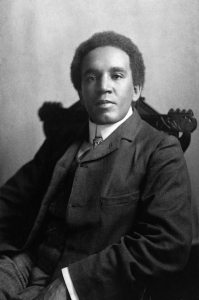



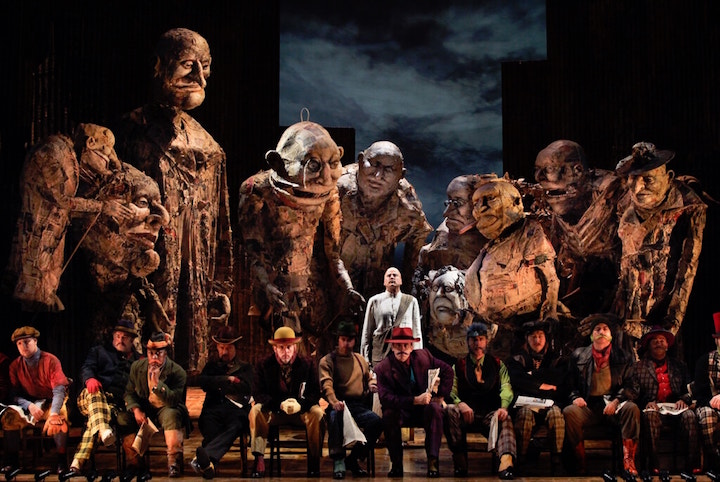
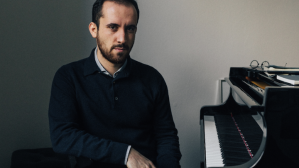



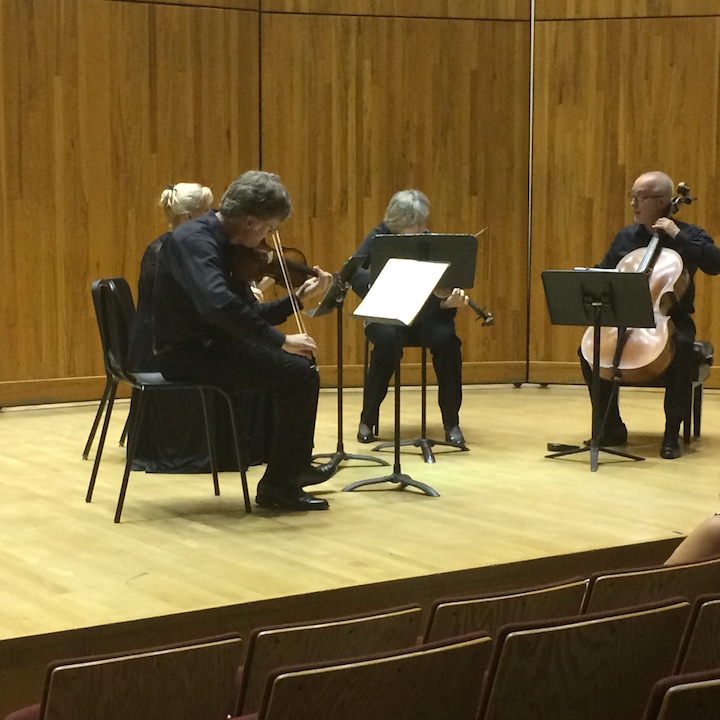



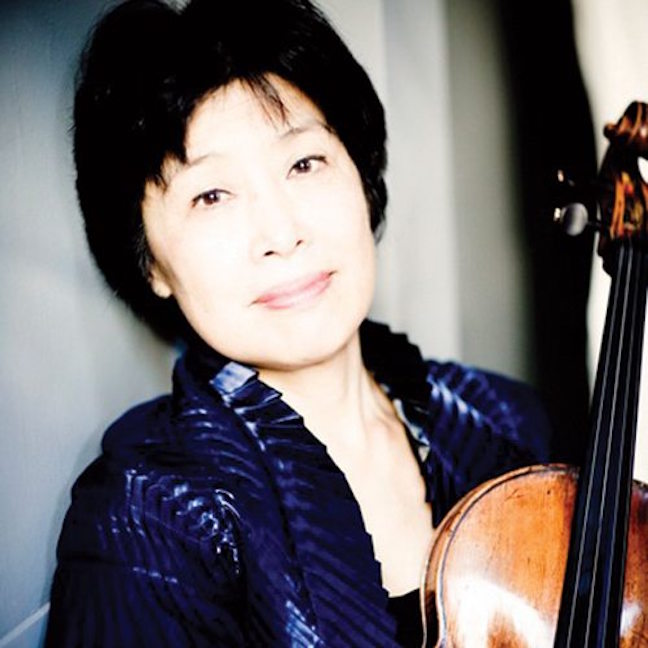
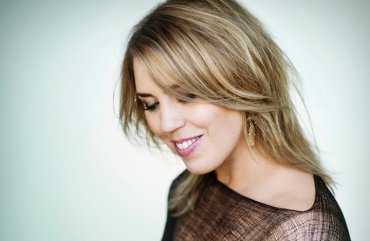
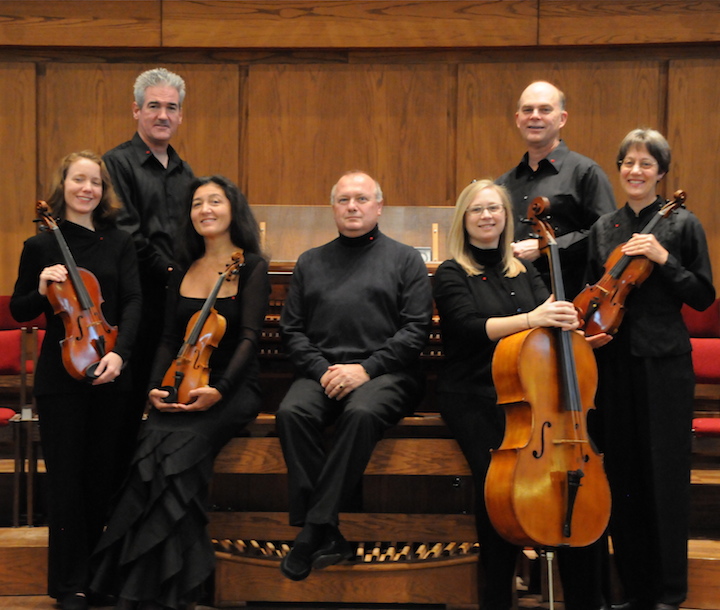



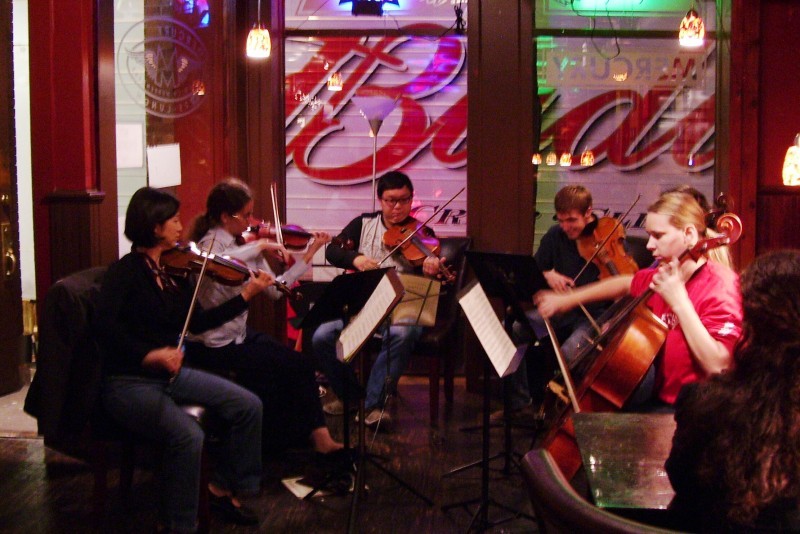

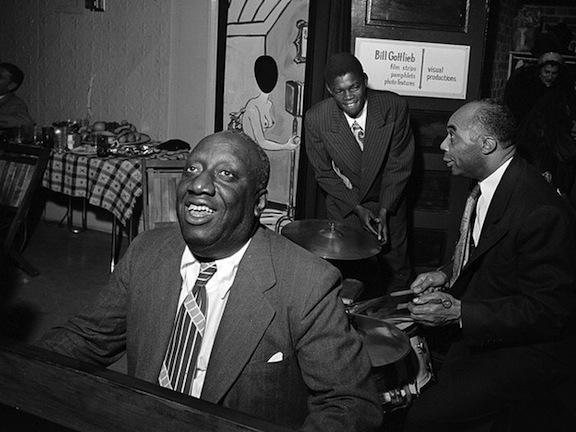
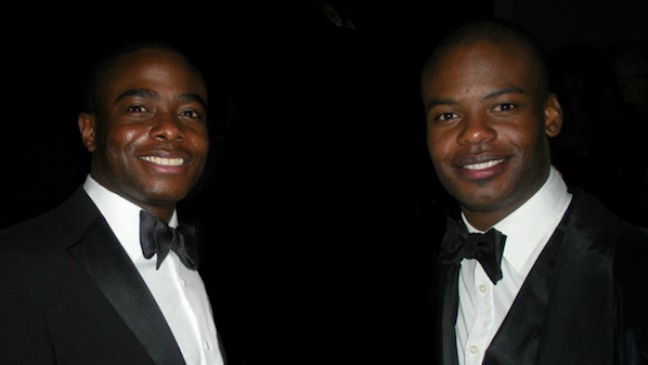
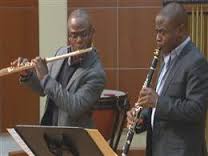
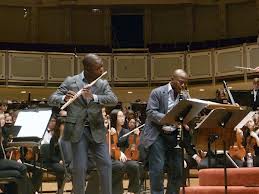
Critics for The New York Times name their Top 10 online classical concerts for May
Leave a Comment
PLEASE HELP THE EAR. IF YOU LIKE A CERTAIN BLOG POST, SPREAD THE WORD. FORWARD A LINK TO IT OR, SHARE IT or TAG IT (not just “Like” it) ON FACEBOOK. Performers can use the extra exposure to draw potential audience members to an event. And you might even attract new readers and subscribers to the blog.
By Jacob Stockinger
Even as we wait to see whether concerts in the next season will be mostly streamed or live, the critics for The New York Times have named their Top 10 classical concerts to stream and hear online in May.
The Times critics have been doing this during the pandemic year. So perhaps if and when they stop, it will be a sign of returning to concert life before the pandemic.
Then again, maybe not, since The Ear suspects that many listeners have liked the online format, at least for some of the times and for certain events. So maybe there will be a hybrid format with both live and online attendance.
As the same critics have done before, they mix an attention to contemporary composers, world premieres and up-and-coming performers, including the Finnish conductor Susanna Maliki (below top) in a photo by Hiroyuki Ito for The New York Times).
In a welcome development, the recommendations for this month also seem to mention more Black composers, performers and pieces than usual, including the rising star bass-baritone Davon Tines (below, in a photo by Vincent Tullo for The New York Times).
But you will also find many of the “usual suspects,” including Haydn, Mozart, Schubert, Bartok, Benjamin Britten, Olivier Messiaen and Shostakovich. (On the play list is Schubert’s last song, “The Shepherd on the Rock,” which you can hear in the YouTube video at the bottom.)
You will also find dates and times (all are Eastern), links to the event and some short commentaries about what makes the concerts, programs and the performers noteworthy.
Here is a link to the story: https://www.nytimes.com/2021/04/29/arts/music/classical-music-streaming.html
Do you know of local, regional, national or international online concerts that you recommend? Leave word with relevant information in the Comment section.
Happy Listening!
Share this:
Tags: "Amadeus", #AixFestival, #AlbertHerring, #AlvinLucier, #AmadeusFilm, #AnthonyDavis, #AnthonyMcGill, #AnthonyTommasini, #AntonFerdinandTitz, #ArpeggioneSonata, #BeethovenSonataCompetition, #BelaBartok, #BenjaminBritten, #BerlinPhilharmonic, #BlackComposer, #Blackperformer, #BlogPost, #BlogPosting, #Bluebeard'sCastle, #BreonnaTaylor, #CelloMusic, #ChamberMusic, #ChamberOpera, #ChoralMusic, #ConcertgebouwOrchestra, #ConcertProgram, #ContemporaryComposer, #CoronavirusPandemic, #COVID-19, #DavidPortillo, #DavonTines, #DiderotStringQuartet, #DifficultGrace, #DmitriShostakovich, #DougSchulz-Carlson, #EasternTime, #EcstaticMusic, #ErnestBloch, #EvgenyKissin, #ExperimentalMusic, #FacebookPost, #FacebookPosting, #FranzJosephHaydn, #FranzSchubert, #GreatMigration, #HanKim, #HelsinkiFinland, #HelsinkiPhilharmonicOrchestra, #HiroyukiIto, #HistoricallyInformedPerformancePractices, #IAmSIttingInaRoom, #JacobStockinger, #JaneGlover, #JohnAdams, #JoshuaBell, #KaijaSaariaho, #KlausMakela, #LincolnCenter, #LiveMusic, #LiveStreaming, #MalcolmX, #MetropolitanOpera, #MichiganOperaTheater, #MinnesotaOpera, #MusicBefore1800, #MusicCritic, #MyraHuang, #NathaieJoachim, #NewMusic, #NewYorkCity, #OlivierMessiaen, #OnlineConcert, #OrchestralMusic, #PeriodInstruments, #PhiladelphiaOrchestra, #PianoTrio, #PierreAlexandreTremblay, #PittsburghPost-Gazette, #RecordedMusic, #RisingStar, #ScottWollschleger, #SethParkerWoods, #StevenIsserlis, #StringQuartet, #SusannaMalkki, #SusannaPhillips, #TenorSinger, #TheEar, #TheHolocaust, #TheJoke, #TheMet, #TheNewYorkTImes, #TheShepherdontheRock, #Up-and-Coming, #ValentinesDay, #VirtualConcert, #WilliamGrantStilll, #WolfgangAmadeusMozart, #WorldPremiere, #YannickNezet-Seguin, #YouTubevideo, 90, Adans, Aix Festival, Albert Herring, alternation, Alvin Lucier, Anthony Davis, Anthony McGill, Anthony Tommasini, Anton Ferdinand Titz, Arpeggione sonata, Arts, attack, attendance, attention, audience, Bartok, bass-baritone, Béla Bartók, Bell, Benjamin Britten, Berlin, Berlin Philharmonic, birthday, black composer, Black performer, Bloch, blog, Bluebeard's Castle, boy, Breonna Taylor, Britten, celebration, cellist, Cello, Chamber music, chamber opera, chilling, choral music, clarinet, clarinetist, Classical music, comic, comment, commentary, composer, Concert, Concertgebouw Orchestra, conductor, contemporary, coronavirus, critic, date, David Portillo, Davis, Davon Tines, Diderot String Quartet, difficult, Difficult Grace, Dmitri Shostakovich, Doug Scholz-Carlson, dynamics, Eastern time, Ecstatic Music, England, Ernest Bloch, Europe, Evgeny Kissin, experimental, Facebook, Facebook post, Facebook posting, fan, fans, Finland, Finnish, flood, format, forward, France, Franz Joseph Haydn, Franz Schubert, German, Germany, Glover, grace, Great Migration, Ham Kim, Haydn, Helsinki, Helsinki Philharmonic Orchestra, highlight, Hiroyuki Ito, historically informed performance practices, Holocaust, Huang, hybrid, I Am Sitting in a Room, Im, innocence, innocent, international, Jacob Stockinger, Jane Glover, Jewish, John Adams, Joshua Bell, Kaija Saariaho, Karl Larson, KarlLarson, Kim, Kissin, Klaus Makela, last, life, like, LIncoln Center, link, list, listener, live music, local, Madison, Malcolm X, May, meditative, Messiaen, Metropolitan Opera, Michigan, Michigan Opera Theater, Minnesota, Minnesota Opera, mix, mood, Mozart, Music, Music Before 1800, music critic, Myra Huang, Nathalie Joachim, national, New Music, New York City, New York Coty, noteworthy, Olivier Messiaen, one-act, online, opera, Orchestra, orchestral music, pandemic, Paris, performer, period instruments, Philadelphia Orchestra, photo, Pianist, Piano, Piano Trio, piece, Pierre Alexandre Tremblay, play list, playlist, post, production, program, rarity, recital, recommend, recorded music, recording, regional, relevant, rising star, Roulette, Schubert, score, Scott Wollschleger, section, sentence, series, Seth Parker Woods, share, short, Shostakovich, shy, singer, Singing, soft, Sonata, song, Steven Isserlis, story, stream, String quartet, Susanna Malkki, Susanna Philips, Susanna Phillips, suspect, symphony, tag, tenor, texture, The Ear, The Joke, the Met, The New York Times, The Shepherd on the Rock, time, Tommasini, trio, twist, United States, usual, vigil, Viola, violinist, violist, virtual, Vista, vkkolin, vocal music, William Grant Still, Wisconsin, wistful, woderfuo, Wolfgang Amadeus Mozart, words, world premiere, X, Yannick Nézet-Séguin, Youn, YouTube